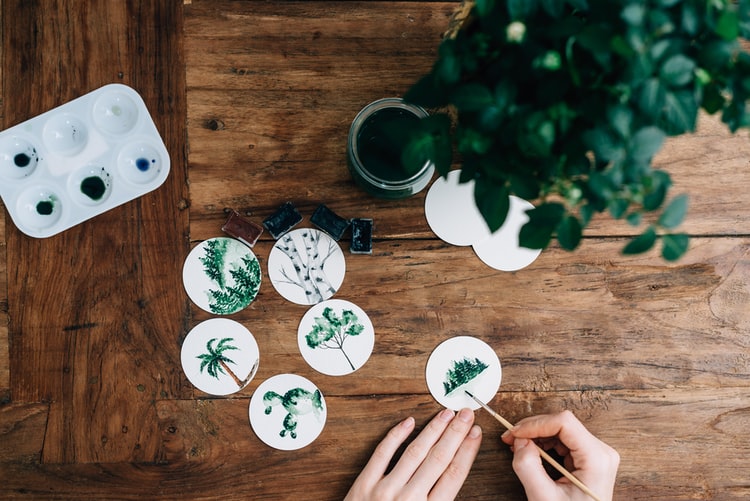If you’re feeling in need of a change then taking up a new crafting hobby could be the perfect solution for you, but choosing a new hobby can be difficult. It’s not necessarily as easy as just picking up a weaving loom kit and getting to work: you need to think carefully and make sure your new craft is going to provide what you need it to. Committing hard to a hobby that you eventually find frustrating won’t help you cope with stress or find that important sense of reward outside work.
Today we’re taking a look at how you can choose a new craft hobby that you won’t regret!
Back into Childhood
Some of the most rewarding adult hobbies can be found by taking a look back into your childhood. One of the great luxuries many children have is time: time to try things out, time to be obsessed by things, time to pursue hobbies that bring them pleasure instead of worrying about the worth they impart as a CV addition or as a potential side-job.
Think back to some of the things you had to give up as school and work took over more of your life: this could provide you with the inspiration you need for your next hobby! Even if you don’t want to return to the french knitting hobby you pursued for one Christmas holiday twenty years ago, it might help you to think about the materials and skills you enjoyed, which could steer you towards crochet or weaving!
What do you Want?
Before you start buying equipment and expensive yarns, think about what you want to get out of your new craft hobby. Different crafts use different materials, different tools, make different products and crucially, feel very different to practise! Knitting is a wholly different experience to weaving and even more different to origami.
When you’re choosing a new hobby look at the tools and materials you’ll be working with and think about the physical sensations they’ll produce. How will knitting feel? Will you enjoy the intense focus needlepoint requires as you count the small stitches on a piece of fabric?
You also need to think about the capacity for artistic expression each craft offers you: many projects require you to follow a set pattern to produce a final piece of work: needlepoint needs you to count individual threads to complete a project accurately. If you’re more interested in free form expression, look for arts where you can express yourself more: surface embroidery, papercrafts and paints can all be much liberating from a creative point of view.
If you weigh all these factors – and try out different crafts prior to committing – you’ll be able to pick a craft to commit to that will reward you potentially years into the future.





